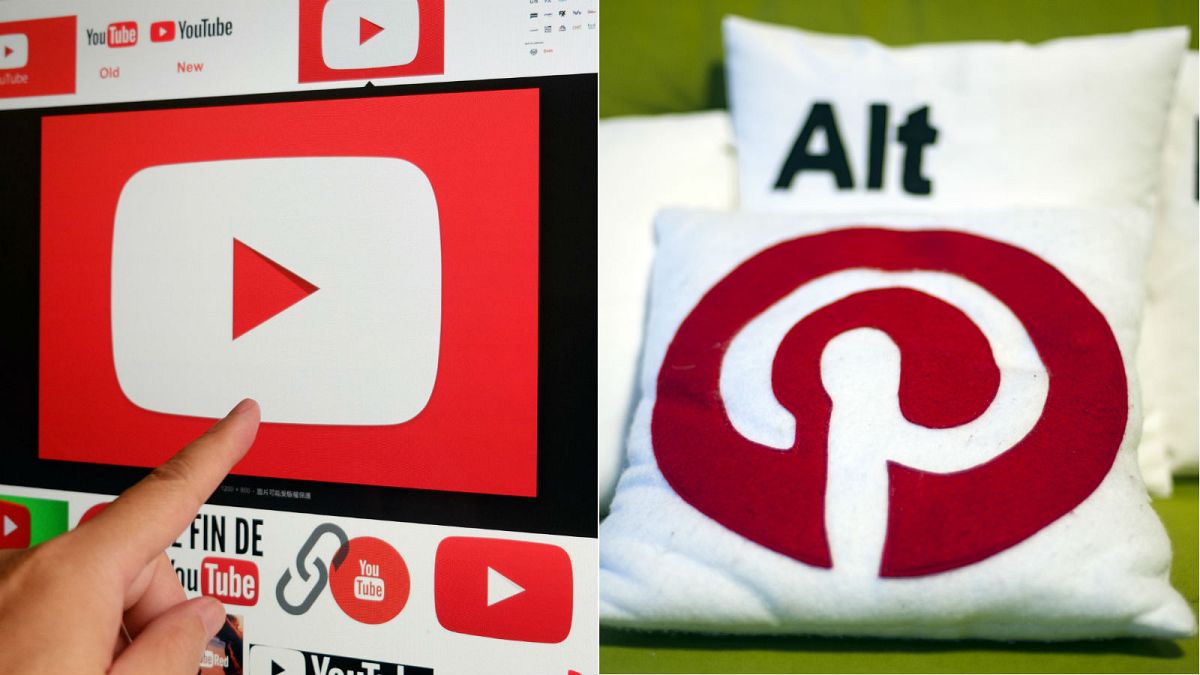With an increase of anti-vaccination posts circulating on social media, Pinterest and YouTube have adopted a zero-tolerance policy for this content.
Responding to a rise of anti-vaccination posts circulating on social media, Pinterest and YouTube have adopted a zero-tolerance policy for this content.
Pinterest told Euronews that its community guidelines clearly state that any "pins detrimental to public health", such as anti-vaccine messages, will be immediately removed from the platform.
The discovery platform said it started blocking searches regarding vaccinations last year because the results were coming up with false information.
In general, any pin, board or account that breaks the community guidelines is removed from the platform, the statement added, without providing any specific numbers.
One of Pinterest's strategies to limit the damage false health information can have on users is to identify and block websites explicitly spreading disinformation on health matters.
"This way, content from these websites are immediately deleted from Pinterest and users are banned from sharing."
No more ads on anti-vaccine videos
YouTube has also put in place strict policies against anti-vaccination videos on its platform.
The platform has started removing ads on anti-vaccine videos, which restricts how videos can make money.
"We have strict policies that govern what videos we allow ads to appear on and videos that promote anti-vaccination content were (and still are) a violation of YouTube's policy regarding dangerous or pernicious acts," a YouTube spokesman told Euronews.
The spokesman added that videos of this nature are immediately deleted from the platform.
Facebook's stance
Facebook said it follows strict community rules and that anti-vaccine posts are commonly fact-checked.
"If information is false, it will be deleted and if content violates community rules it is removed," said a spokesperson for the social media giant.
'A threat to global health'
The World Health Organization (WHO) warned that vaccine hesitancy was a new threat to global health.
"Vaccine hesitancy — the reluctance or refusal to vaccinate despite the availability of vaccines — threatens to reverse progress made in tackling vaccine-preventable diseases," warned the UN's health body.
A 2018 survey found that Bulgaria, Latvia and France were the most vaccine-sceptic countries in the European Union.
Confidence in vaccines has declined in some parts of Europe because of anti-vaccine groups gaining traction in the political sphere, said the report.
The issue of vaccination hit headlines this week when officials in Costa Rica said an unvaccinated 5-year-old French boy on holiday with his parents was suspected of reintroducing measles to the country.
READ MORE: French boy accused of reintroducing measles to Costa Rica
